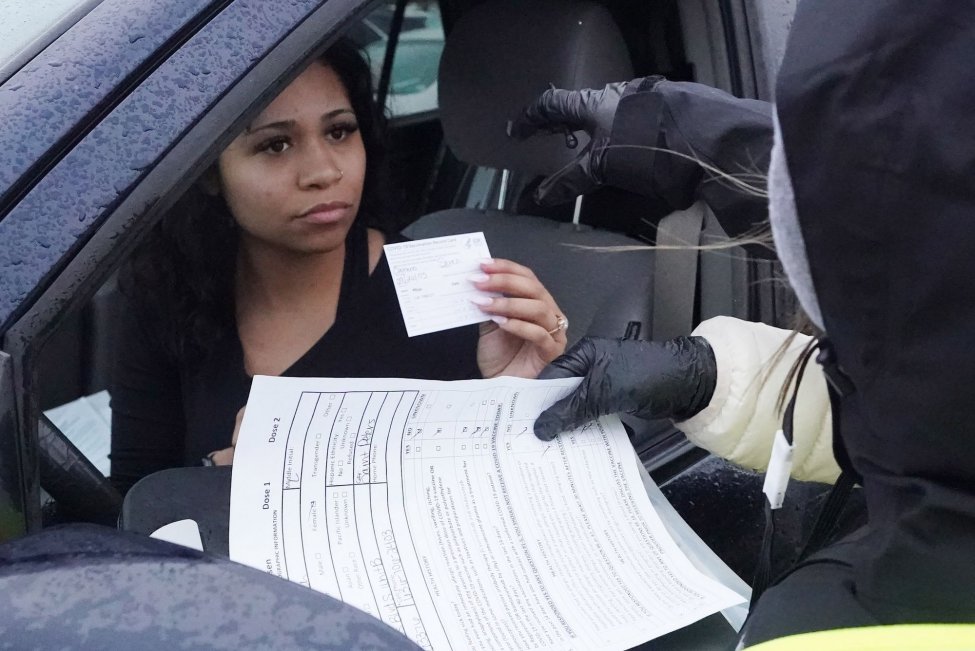Dec. 13 (UPI) — Regions that require proof of COVID-19 vaccination to enter indoor restaurants, theaters and events see a boost in inoculation rates after instituting the policies, a study published Monday by the Lancet Public Health found.
Countries starting at lower-than-average vaccine coverage in the study, such as France, Israel, Italy and Switzerland, experienced a large increase in uptake of the shots after requiring so-called “vaccine passports” for certain activities, the data showed.
However, the requirements did not have a significant effect in Germany, where vaccine coverage already was high, or in Denmark, where vaccine supply was limited, the researchers said.
Increases in vaccination rates linked to these regulations was most pronounced in people 30 years old and younger.
When restrictions were applied to only nightclubs and large events in Switzerland, for example, the largest increase in vaccination rates were seen among people under age 20.
Based on the findings, COVID-19 proof-of-vaccination requirements could help increase inoculation rates in vaccine-complacent groups, such as younger people, the researchers said.
However, implementation should be considered in the context of existing circumstances, such as vaccination coverage, vaccine hesitancy, levels of trust in authorities and pandemic trajectory, they said.
“As mass vaccination programs continue to play a central role in protecting public health in this pandemic, increasing vaccine uptake is crucial both to protect the individuals immunized and break chains of infection in the community,” study co-author Melinda Mills said in a press release.
“Overall, we observed a significant uptick in anticipation of restrictions coming into place around 20 days before introduction, which lasted up to 40 days after,” said Mills, director of the Leverhulme Center for Demographic Science at the University of Oxford in England.
COVID-19 certification, or “vaccine passports,” require people to have proof of their being fully vaccinated, having tested negatively for the virus or having recovered following infection to access public venues and events.
Despite objections from people who consider the policies an infringement on civil liberties, several cities across the country have instituted them, including Los Angeles, New York City and San Francisco.
For residents of these cities, proof of vaccination is required to enter and dine at restaurants, attend concerts and sporting events, or see a movie in a theater.
In addition to helping prevent the spread of COVID-19 in public areas, some studies suggest that requiring proof-of-vaccination might encourage more unvaccinated people get the shot, particularly those who perceive their own risk from the virus as low.
For this study, Mills and her colleagues assessed vaccination rates before and after the institution of vaccine passports in six countries that introduced them between April and September 2021.
The countries included in the analysis were Denmark, Israel, Italy, France, Germany and Switzerland.
Modelling was used to estimate what vaccination rates would have been in each of these countries without vaccine passports.
The models were based on vaccination trends from 19 otherwise similar control countries without similar proof-of-vaccination requirements.
In countries in which vaccine coverage previously was low, introduction of COVID-19 vaccine passports was associated with a significant increase in the number of additional vaccine doses per million people.
Israel experienced a 24% boost in vaccine doses administered after implementation of the requirements, while France saw a 13% increase and Italy and Switzerland each had a 7% rise, the data showed.
Compared with the 19 control countries, daily COVID-19 case numbers decreased after proof-of-vaccination implementation in France, Germany, Italy and Switzerland, but increased in Israel and Denmark.
“We know that certain groups have lower vaccine uptake than others, and it may be that COVID-19 certification is a useful way to encourage vaccine complacent groups, like young people and men, to get vaccinated,” study co-author Tobias Rüttenauer said in a press release.
“However, COVID-19 certification alone is not a silver bullet for improving vaccine uptake and must be used alongside other policies, such as targeted vaccine drives,” said Rüttenauer, a post-doctoral research fellow at the University of Oxford.
